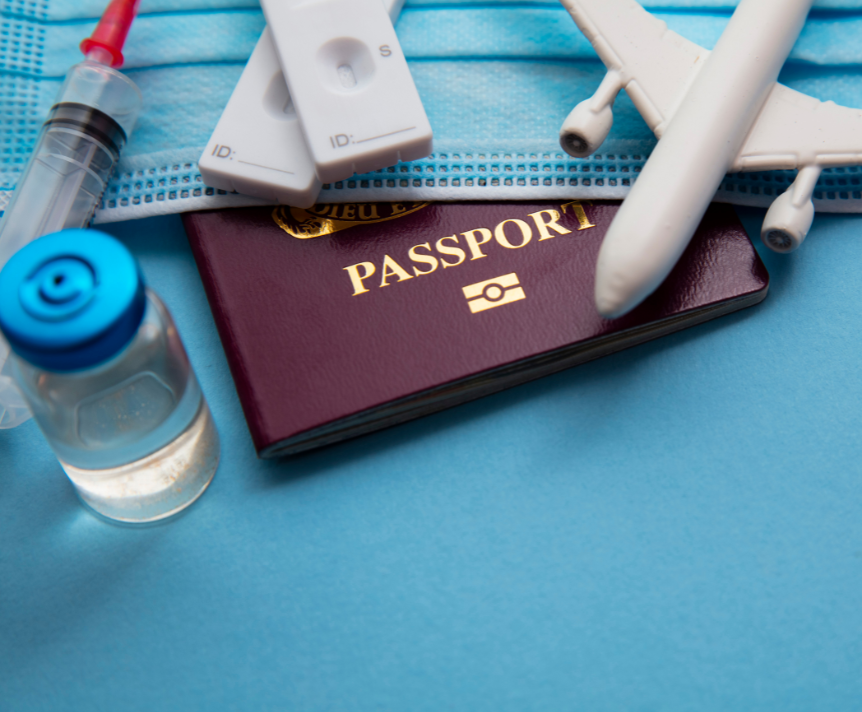Traveling is an exciting opportunity to explore new cultures, cuisines, and landscapes. However, embarking on a journey without ensuring you have the proper Holiday vaccinations can expose you to significant health risks. These risks can range from minor illnesses to severe diseases, making it vital to understand the importance of vaccinations before travel. Below, we explore the key risks associated with traveling unvaccinated and why protecting your health should be a top priority.
The Importance of Holiday Vaccinations
Holiday vaccinations are designed to protect you from infectious diseases prevalent in certain regions. Without them, your body is vulnerable to pathogens that may not exist in your home country. For instance, diseases like yellow fever, typhoid, and hepatitis A are common in tropical and subtropical areas. Vaccinations not only safeguard you but also prevent the spread of diseases to others upon your return.
Common Risks of Traveling Without Vaccinations
1. Exposure to Life-Threatening Diseases
Unvaccinated travelers are at heightened risk of contracting severe illnesses, such as:
- Yellow Fever: Found in parts of Africa and South America, this viral disease can lead to liver damage and internal bleeding.
- Hepatitis A and B: Spread through contaminated food or water, these diseases can cause chronic liver problems.
- Rabies: A fatal condition transmitted through animal bites, prevalent in regions with stray animals.
2. Increased Medical Expenses
Falling ill in a foreign country can result in costly medical treatments. Hospitals may require upfront payments, and insurance might not always cover diseases that vaccinations could have prevented.
3. Travel Disruptions
Diseases can lead to hospitalization or quarantine, derailing your travel plans. Some countries also deny entry if you lack required vaccinations, such as the yellow fever vaccine.
4. Risk to Vulnerable Populations
Returning home unvaccinated can pose a danger to infants, elderly family members, and immunocompromised individuals, who are more susceptible to infectious diseases.
Regions Where Vaccinations Are Critical
Africa
Countries in sub-Saharan Africa have high rates of diseases like malaria, yellow fever, and meningitis. The yellow fever vaccine is mandatory for travel to many African nations.
Asia
Hepatitis A, typhoid, and Japanese encephalitis are prevalent in parts of Southeast Asia. Foodborne illnesses are a common risk for travelers.
South America
In regions such as the Amazon, diseases like yellow fever and dengue fever are significant risks. Vaccinations and mosquito protection are essential.
Middle East
Polio, hepatitis A, and MERS (Middle East Respiratory Syndrome) are some of the risks in this region. Vaccines can help mitigate these dangers.
Why Some Travelers Skip Vaccinations
Many travelers avoid vaccinations due to misconceptions or negligence. Some believe the risk is low, while others may be unaware of the necessary vaccines for their destination. Cost and fear of side effects also deter individuals. However, these short-term concerns can lead to long-term health consequences.
How to Stay Safe Before Your Trip
1. Consult a Travel Health Specialist
Visit a travel clinic, such as Emcare Travel Clinic, to receive expert advice on required and recommended vaccinations based on your destination.
2. Research Entry Requirements
Certain countries mandate specific vaccines for entry. Ensure you comply with these regulations to avoid travel disruptions.
3. Plan Vaccinations in Advance
Some vaccines require multiple doses over weeks or months. Begin the vaccination process early to ensure full protection by your travel date.
4. Maintain Hygiene During Travel
In addition to vaccinations, practicing good hygiene, such as frequent handwashing and drinking clean water, can reduce your risk of illness.
The Global Impact of Traveling Without Vaccinations
Travelers who forgo vaccinations contribute to the global spread of preventable diseases. Outbreaks of illnesses like measles and polio have been linked to international travel. By staying vaccinated, you not only protect yourself but also play a crucial role in public health efforts to eradicate these diseases.
Myths About Holiday Vaccinations
Myth 1: Vaccines Are Unnecessary for Short Trips
Even a brief stay in an affected region can expose you to diseases. Vaccines offer peace of mind regardless of trip length.
Myth 2: Vaccinations Are Painful and Risky
Modern vaccines are safe, with mild side effects such as a sore arm or low-grade fever. These are far less severe than the diseases they prevent.
Myth 3: Travel Insurance Covers Everything
Insurance cannot replace the protection offered by vaccines. Many policies do not cover diseases preventable through vaccination.
Conclusion
Traveling without vaccinations is a gamble with your health and the health of others. Whether you’re exploring tropical rainforests or bustling cities, holiday vaccinations are a small step that ensures a safer and more enjoyable trip. At Emcare Travel Clinic, we provide personalized guidance and immunizations to keep you protected wherever you go. Prioritize your health and make vaccinations an essential part of your travel checklist.
